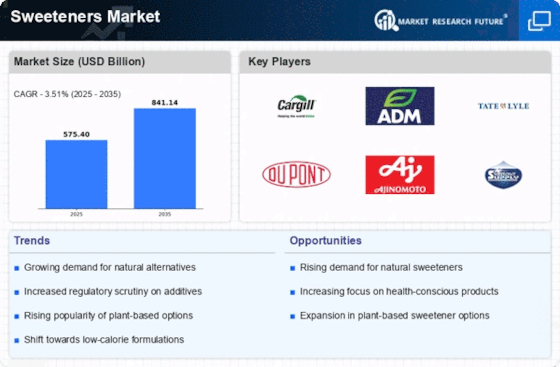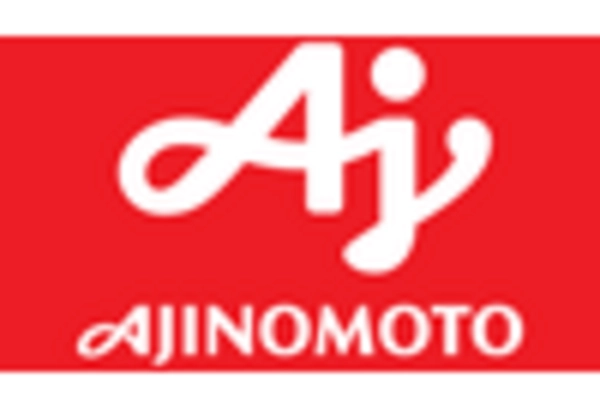Market Share
Sweeteners Market Share Analysis
In the highly competitive sweeteners market, effective market share positioning strategies are essential for brands seeking to differentiate themselves and capture a significant portion of the consumer base. Product differentiation is a key strategy. Brands that offer sweeteners with unique taste and natural alternatives like stevia or innovative blends, can stand out in the market. It also means that a brand can reach out to various kinds of consumers, who all have different tastes in food and sometimes come with special dietary requirements or eating preferences. This allows the brand not only to widen its consumer base but also places it into a market niche which is hard for other competitors to fill. Building a strong and distinctive brand image is essential to the trust of consumers. Those brands that use clear, accessible marketing data to inform consumers about their sweeteners 'origins and the processes of their formation. Of its benefits are likelier in fact find success on the marketplace than those which hide everything behind a curtain Value creating. In this period of increasing competition, storytelling and a clear brand narrative have become methods to connect with consumers on an emotional level. At the same time, they differentiate you from competitors more effectively than certified specialties would otherwise be able by themselves. This is definitely contributing in part to growth of market share for many brands--or at least that's what he hoped as we chatted This growth in market share comes from co-sponsorship with high-class retailers offline as well as online. It's like expanding the number of points at which people can get their hands on a brand or product, and it also includes convenience and sweeteners in the sweetators. The strategy of personalization is becoming more prominent. Sweetener blends tailored to habits and requirements. In this regard, brands offering personalized solutions especially resonate with consumers requesting individual experiences. Customization enhances the consumer's connection with the product and fosters brand loyalty, contributing to a larger market share. Pricing strategies are critical in market share positioning within the sweeteners industry. Brands can adopt various pricing approaches, from positioning themselves as premium options with high-quality natural sweeteners to offering more affordable alternatives that appeal to price-sensitive consumers.


















Leave a Comment